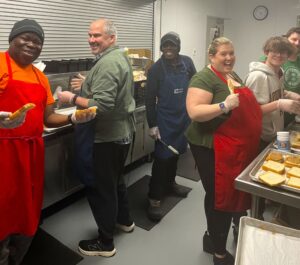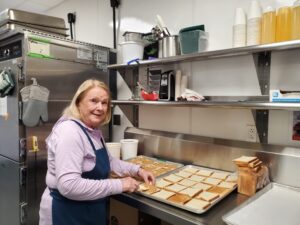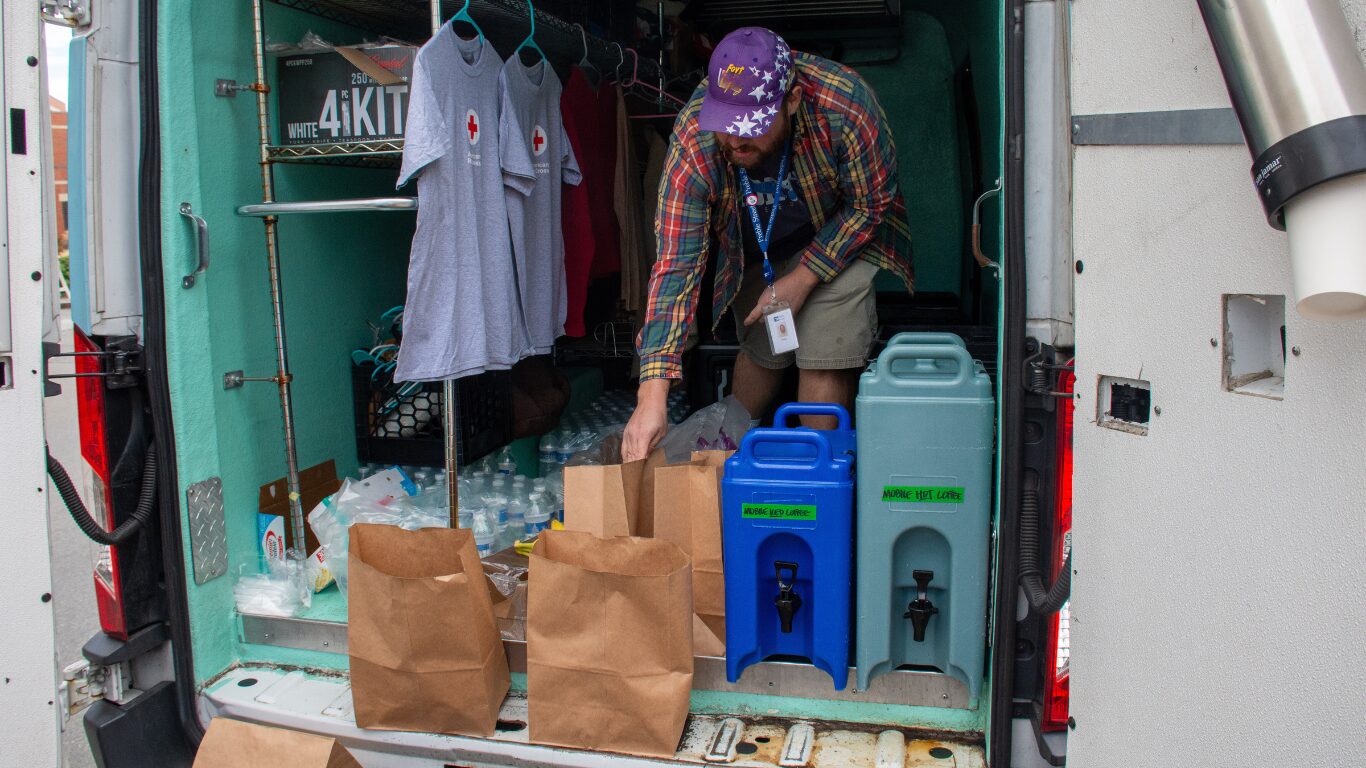[A meal] is so comforting. It's a feeling of home sweet home. There have been times when I've been hungry for so long and struggled for so long that I had a hard time digesting food... I know people that have gone without food so long that having a plate of food in front of them is just foreign. I'm thankful for it today, and I don't take it for granted. Hopefully anybody that does have a meal every day knows that that's truly a blessing in their life.
Andrew, Preble Street Client
According to Feeding America, one in five children in Maine experience food insecurity as well as one in eight adults. Food insecurity, housing insecurity, and homelessness are all interconnected problems. People experiencing homelessness or housing insecurity are often far likelier to face hunger or have problems consistently accessing healthy, nutritious, and culturally appropriate food. And, importantly, basic needs, like hunger, need to be met before people can go on to make connections to housing or employment services or healthcare.
Every year, the week before Thanksgiving is National Hunger and Homelessness Awareness Week. Preble Street’s commitment to empower people facing problems with hunger and homelessness shows up in all of our work… from food programs to street outreach to Preble Street’s shelters and Site-based Housing First programs.
Preble Street’s Food Security Hub is the heart and soul of Preble Street Food Programs, producing up to 2,000 meals every day and an average of 1,600 food box meals every month for people experiencing food insecurity and homelessness across 26 towns in Southern Maine. The Food Security Hub is expanding operations and will have the capacity to produce up to 10,000 meals a day, with freezer storage for 50,000 frozen meals. The meals produced by the Food Security Hub feed people in Preble Street programs, like the Elena’s Way Wellness Shelter, and get distributed to other organizations, like the City of Portland’s Homeless Services Center and the Portland Boys and Girls Club.
Basic needs, including food, are a critical component of Preble Street’s mobile and street outreach conducted by the Street Outreach Collaborative (SOC). Meeting basic needs helps to build meaningful relationships with people, establishing trust to then connect them with the larger homeless services system. “We’re able to give people something, like food, warm gloves, or a pair of socks, without asking for anything in return. We build trust by meeting people’s basic needs,” says Bob Avery, a caseworker with the SOC.
Preble Street works to ensure the meals and food we provide as well as how we distribute it is most productive, accessible, and helpful for the people we serve. Preble Street works with local farms, fishermen, and anti-hunger organizations to ensure our meals are healthy, nutritious, and culturally appropriate. Some farms and organizations include Liberation Farms, operated by the Somali Bantu Community Organization, and the Cumberland County Food Security Council. As the Food Security Hub expands to meet the need in Maine, an estimated 75% of the products preserved at the Food Security Hub will be Maine-grown.
This emphasis on making food accessible and helpful for the people we serve extends to our work at the Elena’s Way Wellness Shelter. Many times, people experiencing homelessness wait in line for every meal, but at Elena’s Way, “we’ve empowered clients to take food when they want it or when they need it,” says Elena’s Way Director, Henry Myer. This model is one part of Preble Street’s and Elena’s Way’s goal to “reduce the indignities of homelessness,” Myer says.
Everyone needs access to local and nutritious food, but that isn’t the reality for all Mainers. Preble Street is working to change this.
Continue Reading...

Fostering connection through food
Preble Street Food Programs is committed to providing the most nutritious, delicious, and balanced meals possible for people struggling with food insecurity in Maine. While recent updates to the Preble Street Food Security Hub have made this easier, there are still unique challenges. We rely on donations, meaning we often don’t know what ingredients we

Feeding Maine sustainably
Climate change affects everyone, but people living in poverty — especially people living outside — are most vulnerable to rising temperatures, natural disasters, and global threats to food security. Sustainability is built in at the Preble Street Food Security Hub (FSH), where we address urgent food security needs. The Food Security Hub is currently undergoing

Betty: A volunteer’s story
Betty Haymon has been volunteering at Preble Street every month for 25 years. In the summer of 2000, she signed up to do the breakfast shift at the Resource Center Soup Kitchen on the first Saturday of each month. Shortly after, she was given a tour of the Teen Center and told that their kitchen

